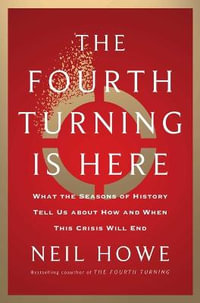The Stripper Goddess of Japan: The Life and Afterlives of Ame no Uzume is the first complete English translation of Ame no Uzume den (1991) by one of Japan's most influential post-war intellectuals, Tsurumi Shunsuke (1922-2015). Tsurumi regarded this book as the most important of his vast and varied corpus; in a sense, it is his tour de force, liberally drawing from his profound knowledge and thinking in multiple fields, ranging from classic and contemporary literature to philosophy, sociology, history, anthropology, politics, popular culture and 'marginal' (genkai) art.
Tsurumi's subject, Ame no Uzume, is a minor goddess in Japanese mythology who appears in the ancient texts Kojiki and Nihon shoki. She is famous for her comic-shamanistic dance performance enticing the Sun Goddess Amaterasu out of the Heavenly Cave where she has retreated as a result of her brother's violence. Uzume's half-naked performance is so entertaining to the other deities that Amaterasu ventures outside, thus restoring light to the world. In another episode, Uzume faces a formidable stranger giant, Sarutahiko, at the crossroads of Heaven and Earth, and manages to ease tensions and avoid confrontation. In both instances she reveals her abilities as an open-minded and border-crossing goddess with a democratic, pacifist and mirthful approach to dealing with discomfort and adversity.
Tsurumi identifies Uzume's eight quintessential characteristics and demonstrates how some of these are found in people across a wide range of genres, fields and cultures through time and space. Many of his examples are women, including the founder of kabuki, Izumo no O-Kuni; the legendary post-war striptease performer, Ichijō Sayuri; the founder of the 'dancing religion', Kitamura Sayo; the provocative writer-nun, Setouchi Harumi/Jakuchō; and the famously humorous novelist-essayist, Tanabe Seiko. Tsurumi's method, structure and style perfectly match his subject, opening the way for deep consideration into ways in which the many serious global issues facing humankind such as climate change, human rights, and escalating warfare may be resolved or at least diminished.
Industry Reviews
'Funny, erotically charged, analytical ... this is a remarkable book by Japan's most remarkable intellectual rebel. More than anyone else, Tsurumi set the example of tolerance and social activism in Japan for the twenty-first century.' --- Roger Pulvers, author of My Japan
????"This vividly original book brings us a Japan that is startlingly at odds with the West's usual understanding of it. Taking his cue from the rollickingly erotic goddess Ame no Uzume who plays a crucial and outrageous role at the heart of Japanese mythology, the great critic Tsurumi Shunsuke traces her heritage through multiple manifestations down to the convention-defying women of modern Japan. In doing so, he provides a fascinating and compelling alternative cultural history of Japan and specifically its women. This major work by a major Japanese writer and thinker will be welcomed by anyone interested in reaching deeper into some of the complexities and surprises of Japan's hidden psyche." --- Meredith McKinney, translator of The Pillow Book
???'I think that everyone makes their own personal catalogue of Japanese traditions as they go about their lives', writes Tsurumi Shunsuke, one of modern Japan's most respected and imaginative thinkers, in this hidden classic, a kind of valedictory statement written in the autumn of his life. For him, the ancient goddess Ame no Uzume, who lured Amaterasu out of her cave through nudity and laughter and so returned light to the world, stands at the beginning, presenting an ancestral ideal for how he wants Japan to be in the world. He limns the state of mind of postwar Japan through a series of portraits of women he regards as Ame no Uzume's modern descendants, ranging from the famous striptease artist Ichijo Sayuri to the taboo-defying modern women writers Setouchi Jakucho and Tanabe Seiko. This expansive meditation on the underpinnings of Japanese culture as outward-looking and intrinsically opposed to the myth of Japanese uniqueness, is many things at once: a contribution to the philosophy of play, a reminder that dance was once used by the living to commune with the dead, and, enfin, a panoramic history of Japan in global context with women at the very center. The translators, for their part, have done an admirable job in making the author's thought accessible in all its detail and winning style.' --- Janine Beichman, translator and editor of This Overflowing Light: Selected Poems by Ishigaki Rin

























